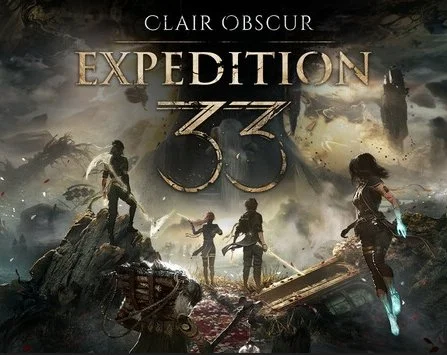Ethical Considerations and Concerns Surrounding Battle Passes
The battle pass model, while financially successful and engaging for players, raises important ethical considerations around game design, monetization, and player psychology. While many players enjoy the rewards and progression that battle passes offer, critics argue that the model can lead to manipulative practices, addiction-like behaviours, and an unhealthy relationship with gaming. This article will explore some of the most significant ethical concerns associated with battle passes and their impact on players.
Exploitation of Psychological Vulnerabilities
The design of battle passes often leverages psychological principles such as reward anticipation, the sunk cost fallacy, and FOMO (fear of missing out), which can make the model feel exploitative. By presenting rewards on a tiered system, battle passes encourage players to invest time and money incrementally, sometimes leading them to spend more than they intended or continue playing out of a sense of obligation rather than enjoyment.
This model can disproportionately affect players who are more susceptible to these psychological triggers, such as younger audiences or individuals prone to addictive behaviors. The pressure to keep playing in order to "get their money’s worth" or to avoid missing out on exclusive rewards can lead players to invest time and money beyond what is healthy, creating an environment that might exploit their vulnerabilities rather than respecting their autonomy.
FOMO and Pressure to Play Constantly
One of the most criticized aspects of battle passes is their reliance on FOMO. By offering exclusive rewards that are only available for a limited time, battle passes instill a sense of urgency. Players often feel compelled to complete the pass before the season ends, even if it means playing more frequently than they’d like or extending their gaming sessions to uncomfortable lengths. The pressure to play and unlock rewards within a short window can be exhausting and detract from the enjoyment of gaming as a leisurely activity.
The use of FOMO can be particularly problematic for young players, who may lack the self-regulation skills to balance gaming with other responsibilities. The constant cycle of limited-time content can lead to obsessive behavior and, in some cases, interfere with personal and academic obligations. For players who feel unable to meet these demands, FOMO can generate anxiety, frustration, and an unhealthy attachment to gaming.
Risk of Normalizing Excessive Spending in Games
Battle passes blur the line between gameplay and payment, normalizing the expectation that players should continually pay to access new content. While the battle pass is often advertised as a “better value” than traditional microtransactions, its seasonal, recurring nature creates a subscription-like cycle where players are conditioned to expect frequent purchases. Over time, this model can normalize the idea that continual spending is part of the gaming experience, especially in free-to-play games.
This expectation can be particularly concerning for younger players who may not fully understand the financial implications of battle passes. As battle passes have become more common, they risk setting a new standard where players feel pressured to continually invest money to stay relevant or “up-to-date” in their favorite games. In this way, the battle pass model can foster an environment where spending on games is seen not as a choice but as a necessary part of participation.
Encouraging "Grind" and Potential Burnout
The design of battle passes frequently requires a significant time commitment to complete. By structuring rewards in tiers that require extensive playtime, battle passes encourage players to engage in repetitive tasks, or "grind," to unlock the most desirable items. For players who want to maximize their purchase, this often means dedicating large amounts of time to a single game, even if the gameplay becomes monotonous or less enjoyable.
This “grind” dynamic can lead to burnout, especially for dedicated players who feel they must complete the pass to justify their investment. Rather than promoting enjoyment and skill development, this system incentivizes time investment, sometimes at the expense of fun or player well-being. Developers may argue that players are free to skip rewards if they wish, but for players who have invested money, the perceived obligation to unlock rewards may feel less optional and more like a duty.
Potentially Exacerbating Socioeconomic Disparities in Gaming
The structure of battle passes often segregates players based on their ability or willingness to pay, creating a system where premium rewards and cosmetics are locked behind a paywall. This can create a visible divide between players who purchase the premium battle pass and those who don’t, which may lead to feelings of exclusion or inferiority among players who cannot afford it. By fostering an environment where in-game status is tied to financial investment, battle passes risk alienating players from lower socioeconomic backgrounds.
In games with a strong social component, this divide can impact the overall community, as players who invest more in battle passes may be perceived as more committed or “elite” compared to those who don’t. This economic stratification within games has the potential to create a less inclusive environment, particularly for younger players who may feel pressured to spend money to fit in with peers or access the same content as others.
Lack of Transparency and Fairness in Reward Structure
The value of a battle pass depends heavily on its specific rewards, which can vary in quality and desirability from season to season. However, players often don’t know the exact content of a battle pass until they’ve already purchased it, leading to potential disappointment if the rewards don’t meet their expectations. Moreover, some games make it especially challenging to reach higher-tier rewards without additional purchases or significant time commitments, which can create a sense of unfairness among players.
In some cases, developers have been accused of artificially inflating the difficulty of completing a pass to push players toward spending additional money on level skips. This lack of transparency and fairness can lead players to feel exploited, particularly when the time and effort required to complete a pass feels disproportionate to the rewards offered. If players perceive the battle pass as fundamentally unfair or manipulative, it can damage trust and diminish their enjoyment of the game.
Moving Forward: Addressing the Ethical Concerns of Battle Passes
To address these ethical concerns, some industry experts have advocated for reforms in how battle passes are structured. Transparent reward systems, fair and achievable progression requirements, and an emphasis on genuine enjoyment rather than compulsive engagement could help battle passes evolve into a more ethical monetization model. Developers might also consider offering alternative ways to earn or unlock content that doesn’t depend on real-world spending or time-limited rewards, allowing players to enjoy the game without feeling pressured.
Regulators have also begun to take notice of these monetization practices, with some countries considering policies to protect younger audiences from exploitative monetization in games. For instance, implementing age restrictions, providing clearer information on game spending, and setting time limitations could be ways to reduce the potential for harm.
Simply Put
Ultimately, creating a fair and transparent battle pass system that respects players’ time and financial investment is key. By addressing these ethical concerns, game developers can design monetization models that balance profitability with player well-being, fostering a gaming environment that remains engaging, fun, and, above all, respectful of its audience.
Recommended Reading
Has the Battle Pass Replaced the Subscription Model in Gaming








